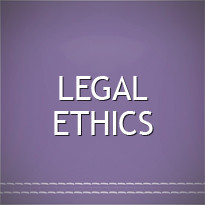G.R. No. 104599 – 231 SCRA 173 – Legal Ethics – Duty of a Lawyer To Encourage Settlement of Suits
Labor Law – Post-Employment – Abandonment; Elements
Jon De Ysasi and Jon De Ysasi III are father and sons, respectively. The elder Ysasi owns a hacienda in Negros Occidental. De Ysasi III is employed in the hacienda as the farm administrator. In November 1982, De Ysasi III underwent surgery and so he missed work. He was confined and while he’s nursing from his infections his employment was terminated, without due process, by his father. De Ysasi III sued his father for illegal dismissal before the National Labor Relations Commission. His father invoked that his son actually abandoned his work.
ISSUE: Whether or not De Ysasi III abandoned his work.
HELD: No. His absence from work does not constitute abandonment. To constitute abandonment, there must be a.) failure to report for work or absence without valid or justifiable reason, and b.) a clear intention to sever the employer-employee relationship, with the second element as the more determinative factor and being manifested by some overt acts. No such intent was proven in this case.
The Supreme Court, in making its decision, noted that the lawyers for both camps failed to exert all reasonable efforts to smooth over legal conflicts, preferably out of court and especially in consideration of the direct and immediate consanguineous ties between their clients especially considering that the parties involved are father and son. This case may have never reached the courts had there been an earnest effort by the lawyers to have both parties find an off court settlement but records show that no such effort was made. The useful function of a lawyer is not only to conduct litigation but to avoid it whenever possible by advising settlement or withholding suit. He is often called upon less for dramatic forensic exploits than for wise counsel in every phase of life. He should be a mediator for concord and a conciliator for compromise, rather than a virtuoso of technicality in the conduct of litigation.
Rule 1.04 of the Code of Professional Responsibility explicitly provides that “(a) lawyer shall encourage his client to avoid, end or settle the controversy if it will admit of a fair settlement.” Both counsel fell short of what was expected of them, despite their avowed duties as officers of the court. In the same manner, the labor arbiter who handled this regrettable case has been less than faithful to the letter and spirit of the Labor Code mandating that a labor arbiter “shall exert all efforts towards the amicable settlement of a labor dispute within his jurisdiction.” If he ever did so, or at least entertained the thought, the copious records of the proceedings in this controversy are barren of any reflection of the same.


